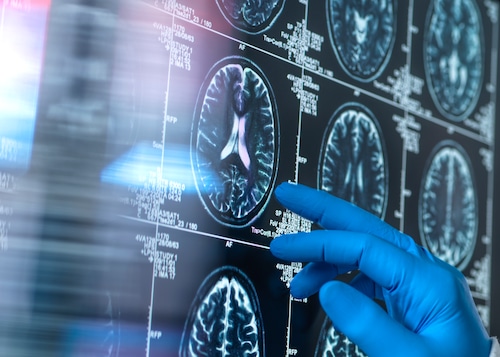Greetings, Dr. Roach The skin beneath my left eye was split by a recent fall. To find out if sutures were necessary, I went to the emergency room. They requested an MRI after I complained of a headache on the left side of my head, which revealed mild small vessel ischemic disease and atherosclerotic vascular disease. Additionally, they discovered plaque in my interior carotid arteries.
I should see a vascular specialist shortly, the emergency room doctors advised. I’m afraid, of course. I am a 76-year-old woman taking thyroid replacement, benazepril, rosuvastatin, and bystolic. Sulfasalazine is another medication I take for inflammatory arthritis. I workout four times a week, take a lot of vitamins and supplements, and maintain a trim figure. Does an MRI indicate Alzheimer’s or dementia? What does it signify? — R.M.
ANSWER: No, dementia cannot be diagnosed by MRI. A provisional diagnosis of dementia is made during a clinical examination that identifies deficits in cognitive abilities like memory, language, and attention. (A pathological assessment of brain tissue, which is rarely done while a person is still living, is necessary to make a conclusive diagnosis of Alzheimer’s.)
The MRI reveals that cholesterol plaque has created a disorder of the brain’s blood vessels. People are susceptible to this disorder due to a number of variables, including smoking, high blood pressure, high blood cholesterol, and family history. Dementia, which is brought on by repeated little strokes that produce cumulative damage to the brain tissue, affects some but not all persons with the types of blood vessel illness you have. Both the tiny and large veins (carotids) are impacted in your situation, which indicates that your blood pressure and cholesterol haven’t been at their best.
To halt or stop this problem from getting worse, your doctor has already taken some action. It’s crucial to carefully manage your blood pressure using benazepril and bystolic. A statin drug (rosuvastatin) has been shown to reduce stroke risk and your overall dementia risk. I don t know whether these are the best medicines for you or whether they are at the right doses, since only your doctor knows you well enough, but it is clear that your doctor is taking steps to protect your heart and brain.
Inflammatory arthritis (especially rheumatoid arthritis and lupus) increases the risk of blood vessel damage in the brain and heart, so early treatment is more important with people who have these conditions. Unfortunately, not all primary care doctors know how important inflammatory arthritis is when it comes to heart attack and stroke risk.
I do not believe there are any supplements or vitamins that are both safe and effective at preventing stroke overall, but there are a handful of people who may benefit from them. For example, people with high homocysteine in their blood may benefit from vitamins B12, folic acid, or their methylated counterparts.
A careful review of your overall health condition and diet is critical. You may be referred to a specialist for cognitive testing if there is any evidence of a change in your thinking ability. A few blood tests will help further stratify your risk and may show a need for additional treatment.
More advice
-
Dear Annie: I still love my husband. But how can I move forward now that he s checked out of our marriage?
-
Why Tho? Should I be worried about girlfriend s mysterious text?
-
Asking Eric: Couple worries about leaving granddaughter with their brain-injured son who has temper issues
Note: Every piece of content is rigorously reviewed by our team of experienced writers and editors to ensure its accuracy. Our writers use credible sources and adhere to strict fact-checking protocols to verify all claims and data before publication. If an error is identified, we promptly correct it and strive for transparency in all updates, feel free to reach out to us via email. We appreciate your trust and support!
